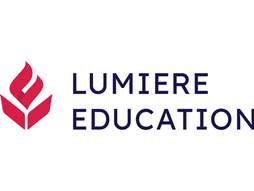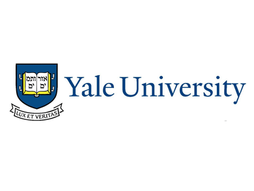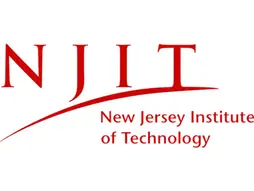Cornell Precollege Summer Residential Program- Should You Apply?
Are you a high school student aspiring to attend an Ivy League institution? Pre-college programs hold a highly positive reputation among admissions officers, signaling students' enthusiasm for learning and commitment to their chosen field. These programs demonstrate a proactive attitude, which admissions committees find compelling as they are willing to go beyond standard high school coursework. On a resume, participation in pre-college programs is a distinctive credential, indicating early exposure to specialized knowledge and hands-on experience. Additionally, it conveys a candidate's readiness for the academic rigor of college or their preparedness for future career pursuits, making them stand out among their peers.
Cornell University’s Precollege Summer Residential Program, is an opportunity for high school students to experience academic college life while taking courses online.
But are these programs worth your time and money? This comprehensive review delves into Cornell Precollege Summer Residential Program’s structure, topics covered, faculty, prestige, costs, eligibility, dates and deadlines, and what you can expect to gain from it. We'll also weigh the pros and cons to help you make an informed decision.
What is the main goal of the program?
Cornell's Pre College Summer Residential Program offers a unique opportunity for high school students to immerse themselves in an academic environment, creating accessibility for students online to engage with and grow on the program’s online platform. In the past, the program typically ran for about three weeks during the summer while participants lived in dormitories, took college-level courses, and engaged in various extracurricular activities. The Cornell Summer Residential Program opened up its experience for students to earn college credit while in high school by taking summer, winter, fall, and or spring courses online.
The program offers more than 100 Cornell undergraduate courses online throughout the course of the year and it remains open for local, international, and students with disabilities to access via the online learning platform.
Is the program prestigious?
While the program is an appealing choice for individuals interested in the resources offered by Cornell University's programs, the pre-college program comes with associated costs which may suggest that it lacks a competitive edge in terms of prestige. However, taking part in this program which includes attending college-level courses can demonstrate both commitment to academics and willingness to engage in a challenging college environment. Moreover, it offers networking opportunities with fellow students and Cornell faculty, potentially leading to valuable connections in the future.
How is the program structured?
As a participant, you are eligible to gain a head start on your college journey by acquiring credits through Cornell University's online programs. One of the strengths of this program is the wide range of courses offered online, taught by esteemed Cornell faculty. Students can choose from various subjects, including science, engineering, humanities, social sciences, etc. These courses are taught by experienced Cornell faculty, allowing participants to learn from experts in their respective fields. As a participant in this Ivy League initiative, you'll have the opportunity to:
Immerse yourself in engaging Cornell University courses while collaborating closely with esteemed Cornell faculty members.
Earn 3 to 8 credits with an official Cornell transcript to jumpstart your college education.
Enhance your college-level study skills through rigorous and well-structured classes.
Receive personalized admissions counseling to prepare for the college application process.
Connect with a diverse cohort of motivated high school students from across the globe.
Online courses are also offered in the winter, spring, and fall where most online courses are delivered through the web-based learning platform Canvas. Typically, you'll engage with instructors and fellow students via email, discussion boards, interactive chat rooms, video conferences, and phone calls.
Course formats vary, some synchronous (live sessions on a predetermined schedule) and others asynchronous (pre-recorded content you can access at your convenience). You can learn more about synchronous (sync) and asynchronous (async) instruction modes.
The grades and credits you earn will be officially documented on a Cornell University transcript and are generally transferrable towards a degree program at Cornell or other institutions.
For the Summer session, you can select from three- and six-week sessions available between May 30 and August 1. This accelerated schedule allows you to complete 15 weeks of coursework within a condensed timeframe while experiencing a genuine college learning environment.
What are the associated costs to consider?
Cornell's courses are standard, credit-bearing courses offered by Cornell University. The grades and credits obtained in these courses are documented on an official Cornell transcript. These credits are subject to transferable status depending on whether you attend a university that is not Cornell. Every university has its own requirements for what is considered transferable and non-transferable.
Consequently, these courses and all credit-bearing programs adhere to the tuition rates established by the university's Board of Trustees.
For the period spanning from fall to summer, the tuition rate is set at $1,750 per credit.
For instance, if you are taking a three-credit course, the calculation would be as follows: $1,750 per credit x 3 credits = $5,250.
Additional Expenses and Fees
Some online courses may include nonrefundable fees for mandatory expenses such as reading materials or course supplies. It's important to note that Cornell's tuition does not cover the cost of textbooks for the course. You can refer to individual course descriptions for information regarding potential fees.
As program spaces are limited, other pre-college and undergraduate students may also be vying for seats in the same course(s). There is a risk of losing your place in the course if it reaches its maximum enrollment before you have submitted your payment and completed the necessary paperwork. Therefore submitting payments as soon as possible is heavily advised by the program.
What are the eligibility requirements?
To be eligible for the program, you typically need to be a high school student who has completed their sophomore or junior year. The application process involves submitting transcripts, recommendation letters, and an essay. Deadlines can vary, so checking the official program website for the most up-to-date information is essential.
Furthermore, because this program is entirely online, international students are welcome and encouraged to apply!
What can I expect as a participant in the program?
Participants in the program can expect a rigorous academic experience. You'll attend classes, complete assignments, and take exams, mirroring the expectations of a college student. It’s important to note that these courses can be taken at the same time while you are completing your own courses in high school. Therefore, it's imperative you set aside time to take these college-level courses and adequately plan your days to attend courses, class discussions, and seminars, and complete homework on time to receive the college course credit.
Pros and Cons of Cornell Precollege Summer Residential Program
Pros
You get access to Cornell University resources Participants gain access to the prestigious Cornell University's academic resources, faculty, and coursework. This exposure can be a valuable addition to your academic journey and provide a glimpse into the Ivy League experience as you apply to college on your own.
Receive college credit in high school You can earn college credits while still in high school. When pursuing a degree later, this can save you time and money, as these credits are generally transferable to Cornell and other institutions. This can be a great experience and benefit for you if you receive the credit as it saves you both time and money when you enter college by taking courses.
Engage in a diverse learning experience Engaging with a diverse group of motivated high school students worldwide offers a unique and enriching learning experience. This exposure can broaden your perspectives and help you build a global network of peers. These are skills you can take beyond the program and apply in your everyday life as you transition into university life.
Cons
You will have to bear high associated costs The program has a significant tuition fee, which might be a barrier for some students. The tuition rate can add up quickly, especially if you plan to take multiple courses. Additionally, there may be additional nonrefundable fees for course materials. It's important to consider whether this is a program you’d want to take part in financially and academically.
Participation comes with a lack of competitive edge on your resume While the program offers valuable academic experiences, it may not be as prestigious as attending Cornell University as a full-time undergraduate student. The associated costs may not align with the level of prestige you expect from an Ivy League institution.
There is a large time commitment required for this program Participating in college-level courses alongside high school coursework can be demanding and time-consuming. Balancing both responsibilities effectively is essential to succeed in the program.
Should You Apply?
In conclusion, Cornell University’s Pre College Program offers valuable academic experiences, faculty and networking experience, and wide exposure to the types of courses offered at Cornell University. The decision to apply to Cornell's Pre College Summer Residential Program should align with your goals and aspirations. If you're highly motivated, eager to experience college life, and can manage the costs, it can be a rewarding experience. However, it's essential to carefully consider the financial aspects and whether the program aligns with your academic interests. Ultimately, your participation in the program should be driven by your personal and academic goals. If you want to experience the Ivy League in a different area, programs such as Columbia University’s Pre-college program and Dartmouth’s, Summer at Dartmouth programs are worth considering.
One other option - Lumiere Research Scholar Program
If you are interested in doing university-level research in STEM, then you could also consider applying to the Lumiere Research Scholar Program, a selective online high school program for students founded with researchers at Harvard and Oxford. Last year, we had over 4000 students apply for 500 spots in the program! You can find the application form here.
Tenzing Dolma is a Masters student specializing in research following the Nechung Oracle and the historical, religious, and cognitive approaches to its presence. She has a bachelors in Neuroscience from Loyola University Chicago and is currently completing her graduate studies at Columbia University. She hopes to help students find their passions through access to programs and organizations the same way she found hers!
Image Source: Cornell logo













